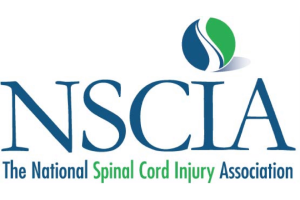Listeriosis
Overview of Food Poisoning Due to Listeria
Listeriosis is a bacterial infection caused by the bacterium Listeria monocytogenes. Listeria food poisoning is especially dangerous for pregnant women because it can lead to miscarriage or still birth, premature delivery and/or infection of the newborn. Because Listeria monocytogenes is an intracellular pathogen, anyone with a depressed cell-medicated immune system (especially pregnant women, fetuses and newborns) are most susceptible to becoming ill after exposure to this organism. Pregnant women are about 20 times more likely to suffer Listeriosis than other healthy adults and, as a result, about one-third of all Listeria infections occur during pregnancy. Other persons at higher risk for Listeria food poisoning include the elderly, patients with cancer, diabetes, kidney disease or AIDS, persons with depressed immune T cells such as transplant recipients and lymphoma patients, and persons who take glucocorticosteroid medications. This pathogen has a long incubation period (3-70 days) and most persons remain symptom free for several days to several weeks after exposure. The initial symptoms in adults are usually fever, muscle aches, nausea and diarrhea. In newborns, additional symptoms include jaundice, lethargy, skin rash, loss of appetite, vomiting and difficulty breathing. If the infection spreads to the central nervous system, headache, stiff neck, lack of balance, confusion or disorientation, convulsion and stroke-like symptoms may develop. Listeria infections, including those suffered by pregnant females, are treatable with antibiotics. However, about 500 Americans die annually as a result of severe Listeria infections. Learn more about other Types of Foodborne Illnesses.
The Causes and Prevention of Listeria Infections and Illnesses
Listeria bacteria is very ubiquitous in the environment, meaning they can be found almost anywhere including in soil, untreated water, wild and domestic animals, birds and insects. Thus, many fruits, vegetables, meats and dairy products can become contaminated in a variety of ways (i.e. contact with soil, manure, host animals, etc.). Listeria is readily destroyed by heat so thorough cooking and pasteurization are the primary methods of preventing infection. However, Listeria can survive in low temperatures so refrigeration or freezing will not kill any organisms which survive undercooking or which contaminate prepared foods after cooking. Thus, Listeria infections are often traced to refrigerated ready-to-eat foods such as deli meats, hotdogs and other prepared products where the bacteria were allowed to grow while the food was maintained in a refrigerator. Pregnant women and other persons at higher risk should avoid hotdogs, cold cuts and deli meats (unless thoroughly reheated), unpasteurized milk or juices, various soft-ripened cheeses or any cheese made with unpasteurized milk, refrigerated pates or meat spreads, and any refrigerated smoked seafood.
Seek Legal Advice From a Qualified Atlanta Food Poisoning Attorney
Ragland Law Firm, LLC is an Atlanta based food safety law firm dedicated to serving the victims of food poisoning and allergic food reactions throughout all parts of Georgia, Alabama, South Carolina, Florida, Tennessee and other states in the Southeast. Learn more about the Food Safety Case Results achieved by the firm’s trial attorneys. If you or a family member have suffered food poisoning due to Listeria or any other foodborne pathogen, we invite you to contact us. There is no fee to consult with a food safety lawyer about your potential claim, and the firm offers contingency fee arrangements on cases it agrees to pursue.









